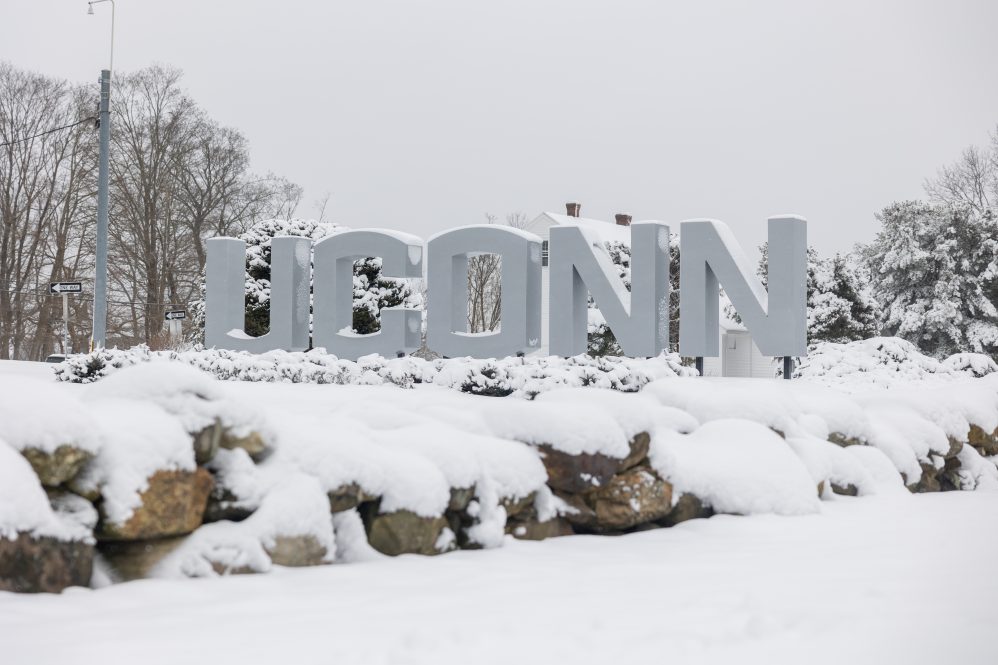UConn is continuing its work to help foster respect, understanding, and constructive dialogue on difficult issues by offering two pop-up courses starting soon on antisemitism and Islamophobia.
The courses will be offered in an online, asynchronous format starting March 4, meaning that students can access the lessons online at their convenience rather than being locked into a specific date and time. As with its previous pop-up courses, UConn is offering the one-credit classes free for students who are enrolled in at least 12 credits.
Registrations are currently being taken through March 10, and students are welcome and encouraged to enroll in both courses if they feel their workload allows. No prerequisites are required for the courses, which run through April 26.
“An important part of providing a world-class education is preparing our students to become global citizens,” says Anne D’Alleva, UConn’s provost and executive vice president for academic affairs.
“These courses are especially valuable in that regard by introducing them to cultures and identities that may be very different from their own, and confronting the damaging stereotypes that can keep us from fully connecting with each other,” she adds.
“Thanks to our faculty’s wide range of expertise, our students will gain a deep appreciation for the ways in which Muslims and Jews have worked for centuries not only to survive amid adversity, but also to thrive and share their rich legacies with the world.”
Confronting Anti-Muslim Racism, which is being offered for the first time, was created at the request of UConn’s Muslim and Palestinian student leaders.
It will be led by Asif Majid, an assistant professor of theater studies and human rights, and David Embrick, an associate professor of sociology and Africana studies, with additional faculty from various schools, colleges, and disciplines also contributing to the modules.
The course’s discussions will include recognizing the difference between anti-Muslim hatred (racism) and Islamophobia (fear of Muslims and Islam); the history of Islam and the cultural, racial, and gendered ways that the history informs today’s anti-Muslim racism; and the U.S. government’s and public’s policing and racialization of Muslim communities.
Students will also assess their own assumptions about Muslims and their politics and perspectives; learn about the racialization of Muslims has affected health outcomes, social movements, college experiences, political agency, and cultural production; and identify resources and courses at UConn to help address and disrupt anti-Muslim racism.
Why the Jews? Confronting Antisemitism also returns this spring after two successful offerings in spring 2022 and 2023. Its lead professor, Yonatan Miller, is an assistant professor of Hebrew and Judaic studies, and joined UConn’s faculty at the start of this academic year.
Multiple contributing professors will also participate in the various modules, which include topics such as recognizing the diverse nature of Jewish identity and tradition from antiquity to the present; classifying the many forms Jewish hate has taken over time; and analyzing how harmful stereotypes are deployed to serve various agendas.
Students will also learn to identify the role that antisemitism has played in European and American history; the history of the Holocaust; contemporary campaigns seeking to delegitimize the state of Israel; ways in which Jews have worked over centuries to respond to hatred and antisemitism and anti-Zionism; and the relationship between conspiracy theories, stereotypes, Holocaust denial, and antisemitism.
UConn began offering pop-up courses in 2020, focusing on timely events as they unfold and drawing from the expertise of faculty across multiple disciplines and campuses.
Past courses have included a class in spring 2020 on the COVID epidemic while it was underway and the world was coping with its ramifications; courses on anti-Black and anti-Asian racism; the climate crisis; and other topics.



